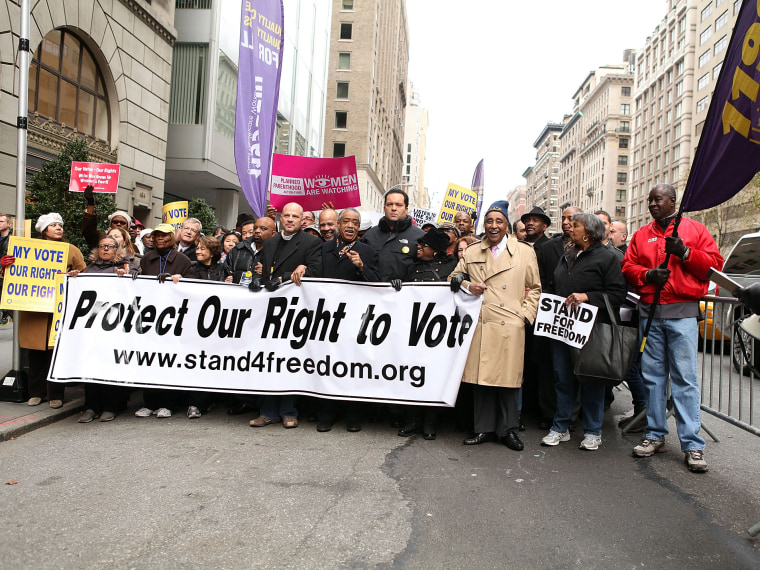Is 48 years long enough to erase centuries of systemic disenfranchisement of voters who belong to minority ethnic or racial groups?
If you are an 18-year-old African-American from the South, you need only ask your grandfather what it was like to be educated in a segregated school. And if you are a Latino from Arizona, you should ask your abuelos if they recall the term “Operation Eagle Eye,” a voter intimidation scheme designed by Republicans in the 1960s to suppress the vote of minorities.
I find it hard to believe that conservatives who revel in tradition and our connection to history have somehow managed to be convinced that those centuries-old traditions of suppressing minority rights have magically dissipated from society so easily.
These are the same conservatives who use scriptures written thousands of years ago to justify sustaining archaic myths about marriage as central to the foundation of civilization. It took Mississippi 148 years to ratify the 13th Amendment of the Constitution, which bans slavery. Yes, meaning the 13th Amendment was officially ratified just this year in Mississippi.
Yet the culture of white privilege that bred the systemic racism which has been infused into our institutions over hundreds of years is supposed to have withered away in five decades.
It makes one wonder if conservatives even believe what they are saying when they cite these ancient authorities, or respond so contemptuously to Latino migration by claiming cultural incompatibility with our supposed Anglo heritage.
On Wednesday, the Supreme Court will consider the constitutionality of Section 5 of the 1965 Voting Rights Act in Shelby County v. Holder. This key provision of the act requires jurisdictions with a historical pattern of voter discrimination against minorities to submit any changes in their voting procedures to the Department of Justice for review to ensure that those laws do not harm the influence of minority voters.
The Voting Rights Act has been reauthorized four times since 1965, the last time in 2006. The Senate voted 99-0 and the House of Representatives voted 390-33 to reauthorize the act, with all thirty-three dissenting votes coming from the Republican Party.
But despite Congress’ overwhelming acknowledgement that discriminatory practices in these jurisdictions justify continued protections, some folks think discrimination is in the past, and to let bygones be bygones.
When the Voting Rights Act was reauthorized in 2006, Representative Lynn Westmorland of Georgia spoke about the heritage of racism that made the act justified, yet he was aghast at how Georgians must “eternally wear the scarlet letter because of the actions of their grandparents or great-grandparents.” Perhaps it should be noted that Mr. Westmoreland was born in 1950, fifteen years before the law was passed. While segregation and institutional racism doesn't rest all on Mr. Westmoreland, he sure seems to be in a rush for us all to forget about it.
Maybe African-Americans in the South should trust folks like Mr. Westmoreland. Maybe they should believe that the forces of evil that consumed his grandparents and great-grandparents have no bearing on the decisions he makes today. But if we were to do so, we would have to believe that history doesn’t matter and that one cannot easily change the social institutions that have developed over the centuries.
James Madison wrote in Federalist 51 that, “If men were angels, no government would be necessary. If angels were to govern men, neither external nor internal controls on government would be necessary.” The Voting Rights Act acknowledges these wise words in pursuit of greater liberty for minorities at a minimal expense to the majority, and perhaps if the conservatives on the Supreme Court believed half of what they claim, they would acknowledge those words also.
Editor’s Note: This article first appeared on NBCLatino.com.
